Whether you’re looking for a commercial or residential HVAC solution, you have probably been through three names throughout your search, Daikin, Trane, and Carrier. Among other brands in the industry, these are some of the most popular HVAC companies in the US.
While all of these offer impeccable quality and long-lasting products, selecting the suitable unit for your needs can become challenging. Moreover, as a newbie in the industry, with the wide range of products available, you might miss out on some key features or burn a large hole in your pocket.
However, this guide has you covered. We have compared the features, reliability, and costs of each HVAC brand so you can pick out the right option. So let’s get started.
Daikin HVAC Systems Review
Daikin brand air conditioning and heating systems are some of the most reliable products for commercial and residential use. Daikin’s history as an HVAC company started back in 1938 when the company began manufacturing refrigeration systems for the Japanese Navy. Evolving from this point in time, the company began to produce air conditioners in the early 1950s.
In 2012, Daikin purchased Goodman, a well-known HVAC brand in US households. This established it as a reliable HVAC company. Let’s go through the various aspects of this brand to get insight.
Features
Whether you purchase a Daikin air conditioner or heat pump, you will get versatile features and impeccable accessibility from each product. Its flagship model offers a SEER rating of 24.5, while the premium model from Trane only offers 22.
Apart from these models, Daikin also offers mid-level and economy-level options, which you can choose according to your budget.
One of the most redeeming factors of Daikin air conditioners is their chlorine-free R-410A refrigeration system. This feature gives the brand its Energy Star rating and makes it an excellent option for those seeking eco-friendly HVAC options.
Moreover, Daikin air conditioners feature upgraded indoor coils as well. These robust aluminum coils resist corrosion, providing additional reliability and reduced installation time compared to other brands.
Apart from that, select units from the Daikin range also offer a two-stage scroll compression, automatic diagnostic features, noiseless operation, and adjustable outdoor fan speeds. So regardless of your requirements, you can get a tailor-made solution for yourself from the brand.
Pricing
If you’re looking for affordable options for your residential or commercial spaces, Daikin is not your brand. Although it does offer an economy model for each of its products, you can quickly get top-tier models of other brands within the same price range.
Attributing to the price factor, you can expect to get the optimum ROI on its top-tier products within 6-7 years. Besides that, the pricing may vary further depending on your region and the installation contractor charges in your area.
Warranty
The warranty is perhaps the best aspect of purchasing Daikin products. So naturally, if you’re parting with a considerable sum of money, you expect to receive a service matching the price tag.
While most leading brands only provide a warranty of around 5-7 years, Daikin gives its customers a 12-year extended warranty. On the downside, this warranty is only for the parts and not for any additional labor required for fixing the product if you face any issues during operation.
However, you can purchase the labor warranty by paying a higher price for the product. Remember, the premium products from Daikin do require skilled technicians to resolve troubleshooting issues. So, make sure to purchase a labor warranty if you’re investing in high-end products.
Trane Air Conditioning and Heating Solutions
Trane HVAC systems trace their roots back to 1885 when the company’s namesake and son started producing low-pressure heating systems. As the company progressed, in 1931, it began manufacturing air conditioners. Today, Trane is one of the most widely-known solutions for air conditioners, furnaces, heat pumps, smart thermostats, and air handlers.
While Trane was acquired in 1984 by the renowned American Standard, the two brands still produce their HVAC systems individually. However, their standard operating system, quality, and reliability remain the same under the parent company Ingersoll Rand.
Although Trane HVAC systems are of impeccable quality, the company requires its trained technicians to install the systems. So, is the brand worth the trouble? First, let’s check out the details.
Features
Trane HVAC systems are known for their flawless productivity, innovation, and functionality. However, one of the qualities that set these products apart is the rigorous testing before landing in consumers’ hands.
Each unit undergoes thorough screening to last the said warranty period mandated by the company, even if subjected to rigorous use. Mainly, Trane divides its product range into three levels: XV, XR, and XL.
The XL series products are base-level affordable options for those seeking budget-friendly solutions. On the other hand, the XV series products offer the most bells and whistles with reliable energy efficiency.
However, if you’re looking for functionality combined with affordability, you can get the best value products in the Trane XR series.
Another prominent feature of Trane’s heating and cooling systems is its Spine Fin Coil. This cutting-edge technology integrated into central air conditioners and heating pumps cools the coil faster and makes it resistant to corrosion.
This means the product will last you longer without any regular maintenance. But, when it comes to SEER ratings, Trane products lag behind Daikin products. Similarly, none of its HVAC systems ensures noiseless operation that can match Daikin HVAC systems.
Pricing
The bane of most HVAC companies is that they don’t disclose their prices upfront. Instead, you have to send them the size and nature of your space to receive a quote from their end. However, Trane does not follow suit with this process.
Instead, the company advertises price estimates upfront on its website to increase transparency to its customers. However, factors such as your region, your hose size, and climate conditions can affect your overall cost.
If you’re considering Trane HVAC products, you should keep in mind that they are some of the most expensive products. For example, a furnace can cost you anywhere around $3500 with the installation, while an air conditioner and heat pump can come with almost $6000.
But, whether you’re looking for residential or commercial solutions, Trane lets you opt for financing. Then, you can purchase the systems at a reduced price from local contractors.
Warranty
With Trane HVAC systems, you’re looking at a base warranty of 10 years. Additionally, some XL and XV models also offer a 12-year warranty. But, there are a few limitations to the warranty.
First, it only covers a few parts that exclude refrigerant and labor. Secondly, you can only benefit from the warranties if you install it and service it from certified Trane technicians. If you don’t meet their terms and conditions, your warranty coverage will be reduced to only 5 years.
Read Also: Trane vs Bosch Heat Pumps
Carrier Heating and Cooling Systems
Carrier is one of the leading HVAC companies in the US. It was founded in 1902 by Willis Carrier, the inventor of modern air conditioning systems. Since then, the company has been considered a pioneer in the industry.
The brand offers an extensive product range of 16 HVAC systems with impeccable technology and reliability based in Indianapolis. So whether you need a central air conditioning system, heat pump, or furnace, this is a go-to brand for all your needs.
However, do its products tick all the boxes according to your requirements? Read the review below to find out.
Features
If you’re looking for an HVAC system with a reliable brand name, then Carrier HVAC systems are ideal. Although expensive, Carrier products are known for having the most energy-efficient and noiseless operational systems.
Its air conditioning systems and heat pumps have cutting-edge Copeland compressors. These single-stage, two-stage, and variable-speed compressors use the company’s ozone-free refrigerant. This means that its products are entirely eco-friendly.
Besides that, its furnaces come with single-stage and two-stage systems so you can regulate the speed levels as you wish. Another attractive feature of the Carrier brand is purchasing packaged systems for added convenience.
Pricing
Attributing to their brand name, Carrier has some of the most expensive HVAC products. Their product prices range from anywhere between $3000-$15000, but many factors might influence the final cost.
You can choose from three different price ranges within the brand. These include the Infinity series, Performance series, and the basic Comfort options. While the Infinity products have the most bells and whistles, they also accompany an astounding price tag.
If you want a budget-friendly option, you can choose a product from their Performance or Comfort range. However, it is best to hire a certified Carrier dealer to evaluate your space and recommend the right solution. Only then will you know the exact final price of the Carrier product you need.
Warranty
Perhaps the only aspect that leaves Carrier lagging behind its counterparts is its warranty policy. Carrier HVAC products only come with a 10-year warranty, subject to several terms and conditions.
Like the warranty for Daikin and Trane HVAC systems, it does not cover anything except a few functional parts. Unfortunately, these do not include its Puron ozone-free refrigerant.
Besides that, the warranty only covers major functional disorders in the product. So if your system faces minor wear and tear, you won’t be entitled to get services within the warranty.
Similarly, if the problem you’re facing entitles you to services within the warranty, you will still have to pay labor expenses.
Most importantly, if you don’t register your product within 90 days of installing it at your location, your warranty period will be chopped down to only five years.
Daikin vs. Trane vs. Carrier: Which HVAC Brand to Choose?
Now that you’ve been through the individual reviews for Daikin, Trane, and Carrier, it all brews down to the showdown. Daikin vs. Trane vs. Carrier, which brand should you choose?
Daikin is one of the leaders in the HVAC market, especially in Asian countries. However, Trane and Carrier follow closely in the US as renowned and reliable brand names. What makes Daikin stand out among its counterparts is its comparatively low price range.
However, if you’re willing to stretch your budget to get a more comprehensive set of features, Carrier offers a higher SEER rating and quieter operation. While the top-tier option from Carrier has a SEER rating of 26, Daikin follows close behind with 24, while Trane catches up at 22.
But, the redeeming quality of Daikin is its accessible warranty. Trane and Carrier’s warranties come with a long list of terms and conditions, so you can get no coverage for any wear and tear in the long run.

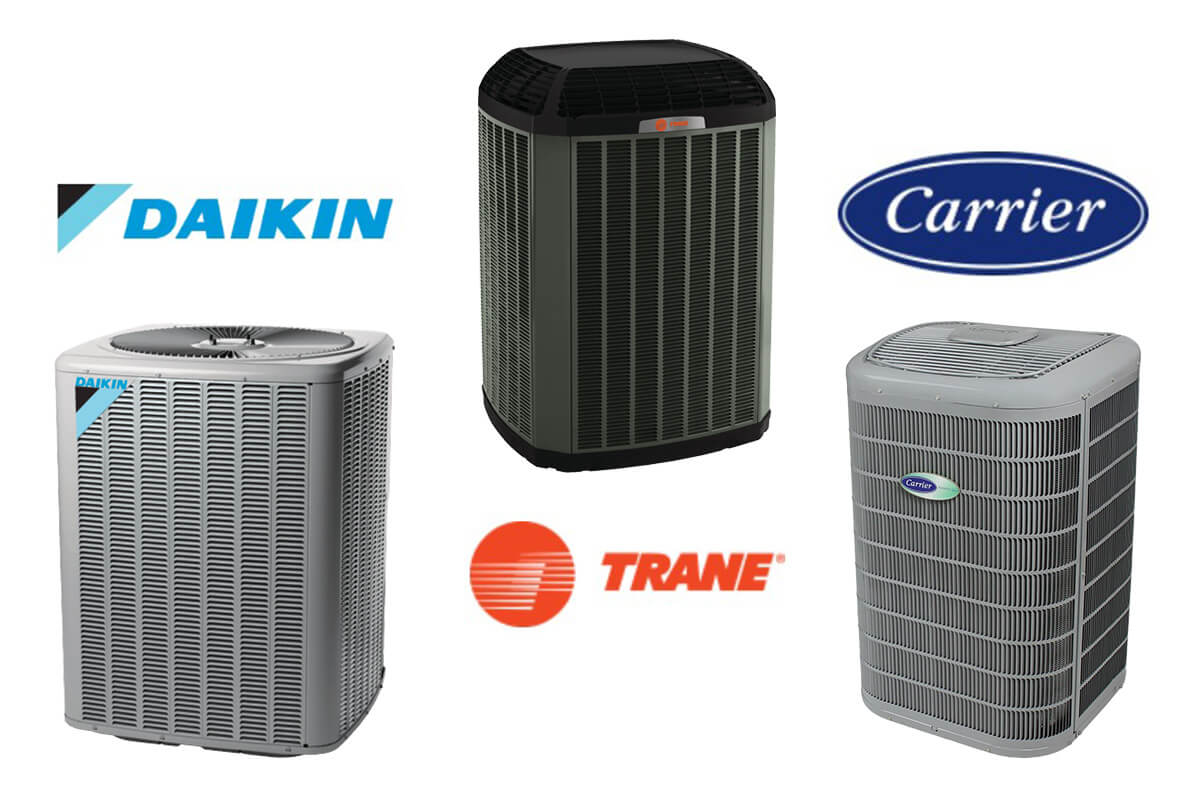
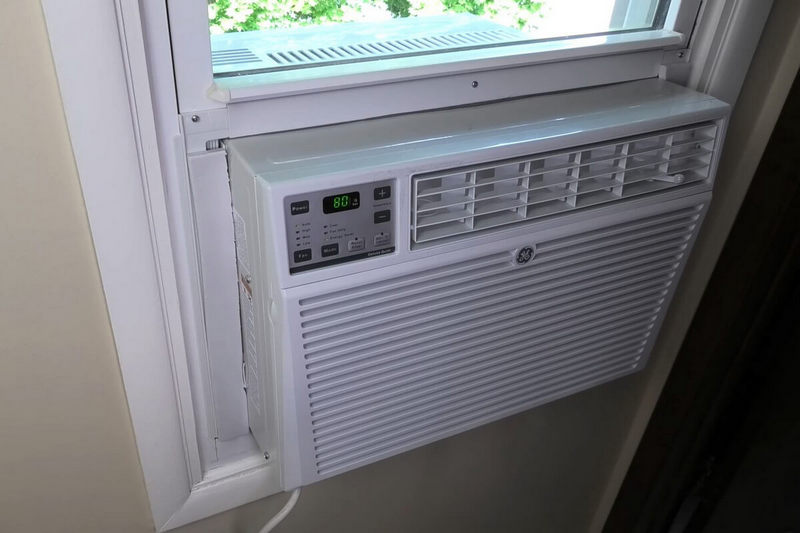
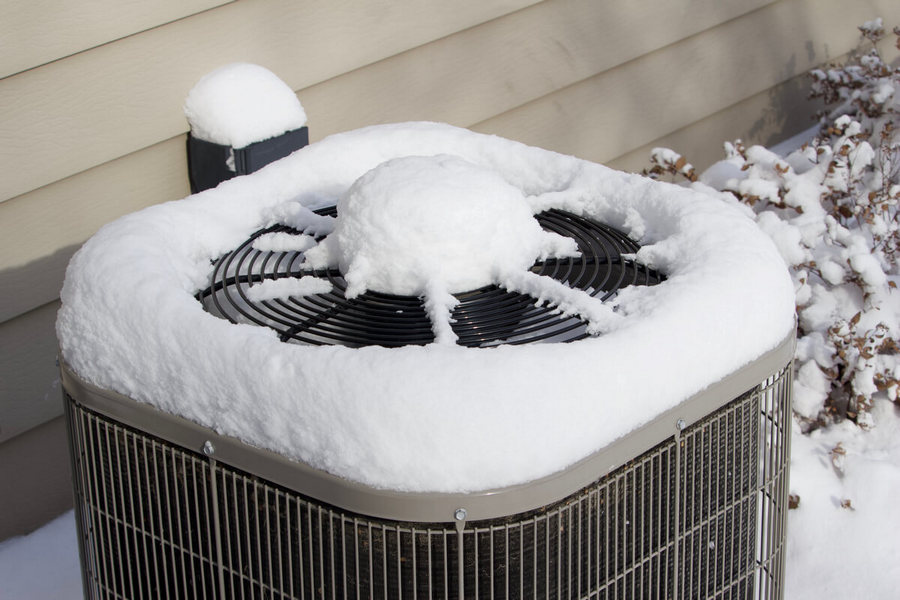
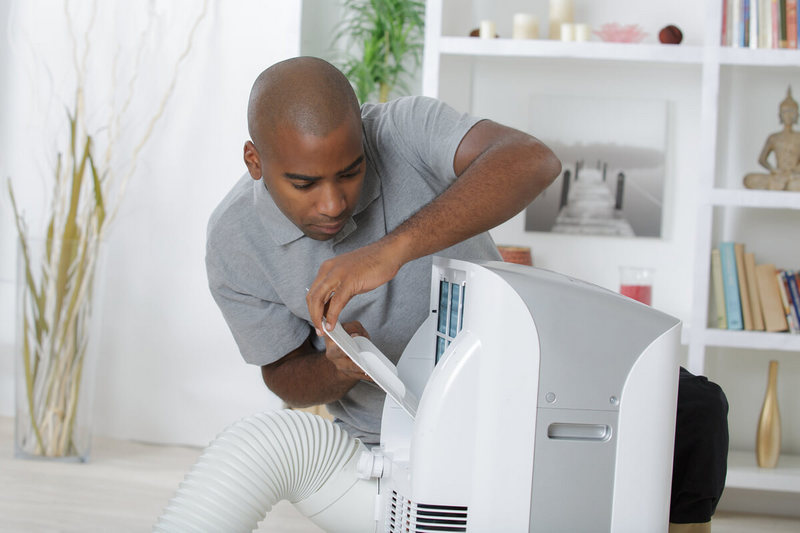
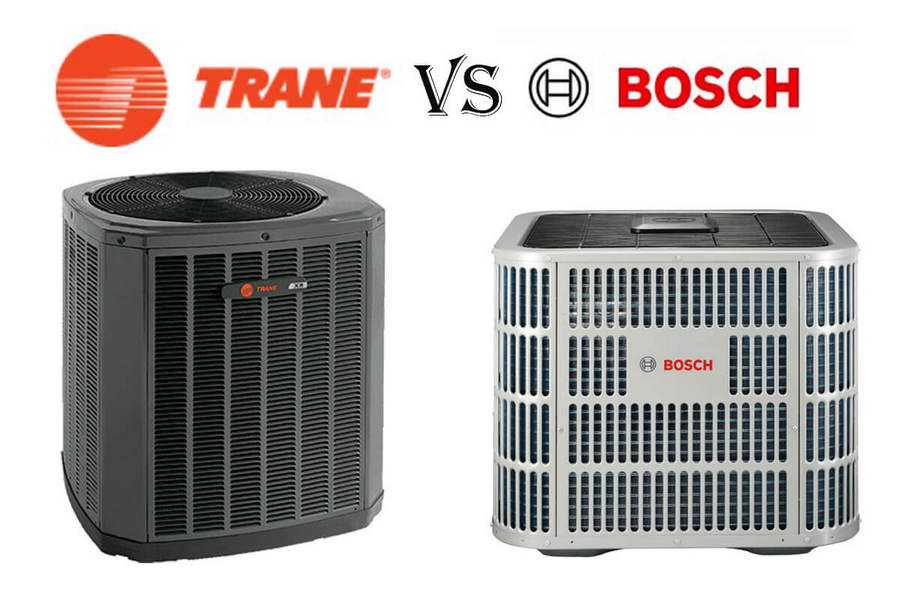

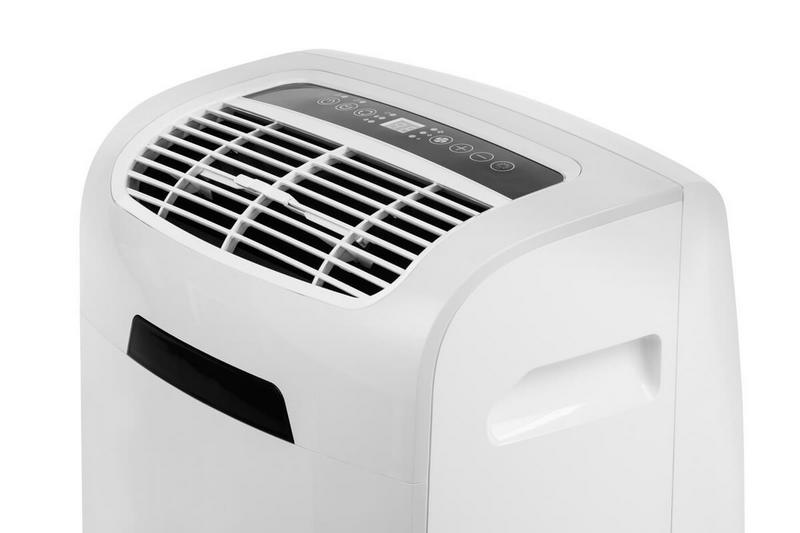
Unreliable system I do not recommend Daiken. I installed the Dz18vcc0481AC with heat pump and the Dv61PECD14AD air handler in our 2300 sq.ft home in FL in 2019. We have had several service calls since. Worse we are now waiting on our second evaporator coil in 2.5 years. It is good that Daiken has a 12 year warranty because you will need it. Here is the rub—even though the coil is covered by warranty you will pay a technician to diagnose the problem, hundreds to replace the Freon and a rip off $ 249 “processing fee” for the warranty service. When completed this so called “warranty” service will cost me over $1,000. Note our AC technicians no longer recommend the Daiken system because of leaking problems with the aluminum evaporator coils. In addition to the costs, the inconvenience of waiting for the parts from Daiken is frustrating. I suggest buying another system.